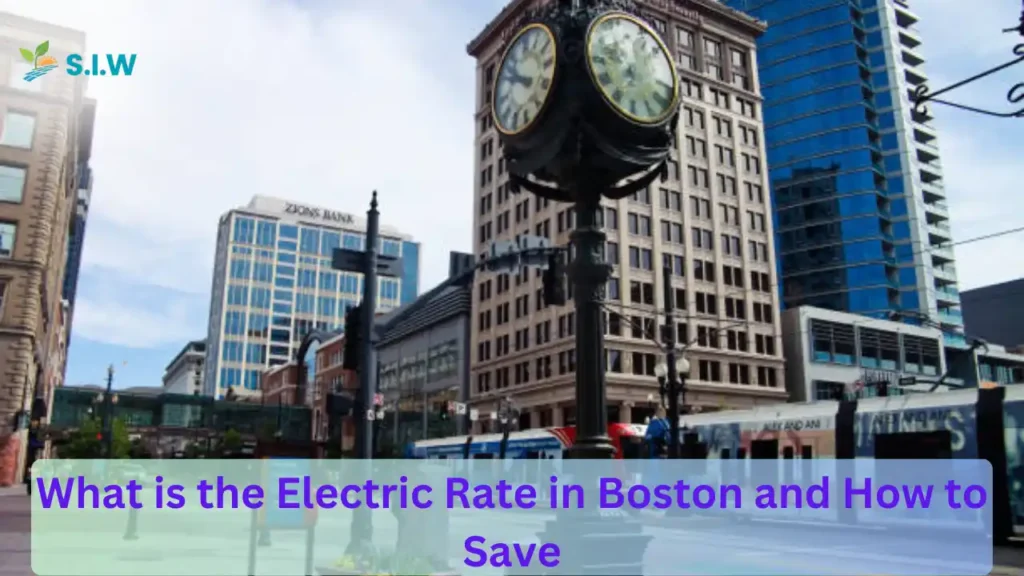When considering the electric rate in Boston, many factors come into play. Boston’s electric rates can fluctuate depending on the season, demand, and the supplier. On average, residential customers in Boston pay around 22-23 cents per kilowatt-hour (kWh). This rate can be slightly higher compared to the national average, which is usually around 13 cents per kWh.
Understanding Electric Rate Components
Base Rate and Delivery Charges
The base rate is the cost of the electricity you use. In Boston, delivery charges are an added cost that ensures electricity reaches your home safely. This part of the bill can often be more significant than the cost of the actual electricity used. Delivery fees cover the maintenance of power lines and other infrastructure.
Supply Charges
Boston residents have the option to choose their electricity supplier. The supply charge is what you pay for the actual energy consumed, and it depends on whether you’re with a local utility company or a competitive energy supplier.
How to Minimize Electricity Bills in Boston
Given Boston’s higher-than-average electricity costs, many residents look for ways to minimize their electricity bills. Small lifestyle changes, such as unplugging appliances, can help. For larger savings, switching to solar power systems for home use is a long-term solution.
Energy Efficiency Measures
Energy-efficient appliances and smart home devices help monitor and reduce unnecessary energy consumption. Swapping old bulbs for LED lights and ensuring your home is well-insulated can make a noticeable difference in your monthly bills.
Why Solar Power Systems for Homes in Boston Make Sense
Switching to solar power systems for home use in Boston offers a substantial opportunity to lower your electricity bills and become less dependent on the grid. Solar energy can significantly offset high utility rates. Plus, Massachusetts offers excellent incentives and rebates for homeowners who decide to go solar, making it more affordable in the long run.
Through the Federal Solar Investment Tax Credit (ITC), homeowners can recover up to 26% of the installation costs. Additionally, Massachusetts offers state incentives, such as the Solar Massachusetts Renewable Target (SMART) program, which pays solar system owners for the energy they produce.
Boston’s Solar Incentives: A Game Changer
Apart from minimizing your electricity bills, installing solar power systems can help make Boston homes more energy independent. Solar systems typically generate excess energy during sunny days, which can be sent back to the grid for credit under net metering policies. This means, on days when solar production is low, you’ll use your credited energy and further reduce your bills.
Personal Experience: How Solar Cut My Electric Bill
I was tired of watching my electric bills spike every winter, so I installed a solar power system in my home. Initially, I was hesitant due to the upfront costs, but the Massachusetts incentives and the long-term savings convinced me. Since then, my electricity bill has dropped significantly, and the extra solar credits I earn during sunny days help minimize costs in the colder months.
FAQs
- What is the current electric rate in Boston?
Boston’s electric rates range from 22-23 cents per kWh, depending on the supplier and season. - How can I minimize my electricity bill in Boston?
You can reduce energy consumption, use energy-efficient appliances, or install solar power systems for long-term savings. - Are there incentives for solar power systems in Boston?
Yes, both federal and state incentives, such as the ITC and SMART program, make solar power systems more affordable. - How does net metering help reduce my bill?
Net metering allows you to send excess solar energy back to the grid for credit, reducing your overall electricity costs. - Are solar power systems for homes worth it in Boston?
Absolutely! Solar can significantly reduce your energy costs, especially with Massachusetts’ generous incentives.








